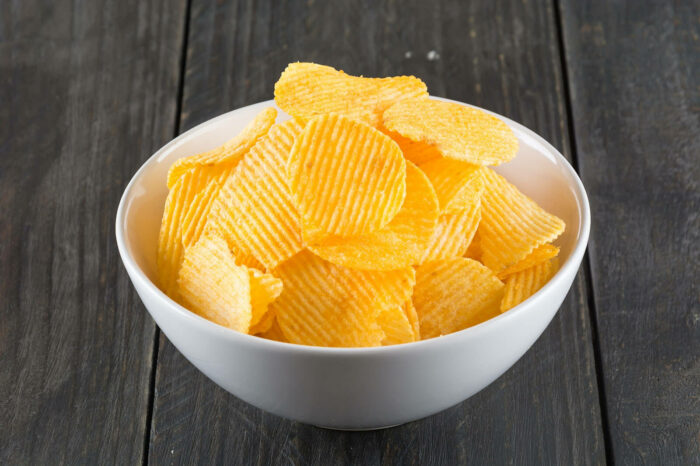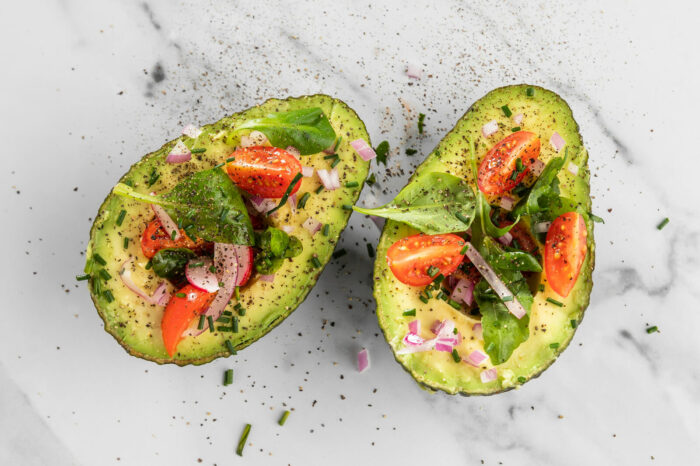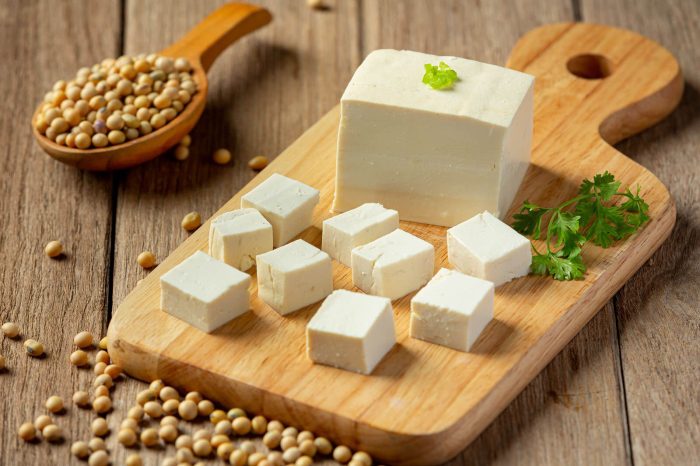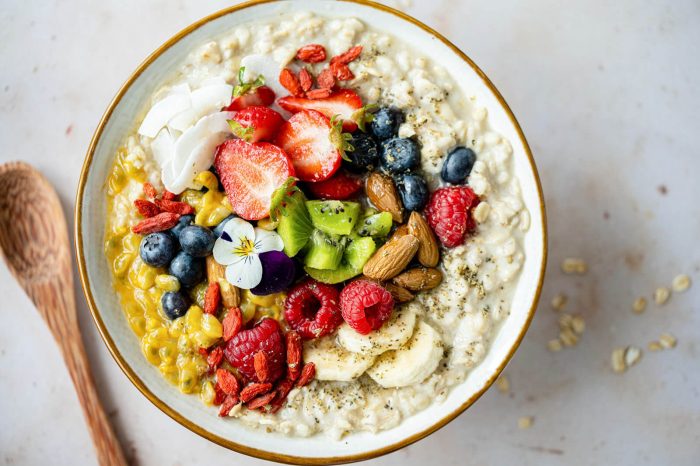Pea Protein vs. Soy Protein – What Are The Differences?
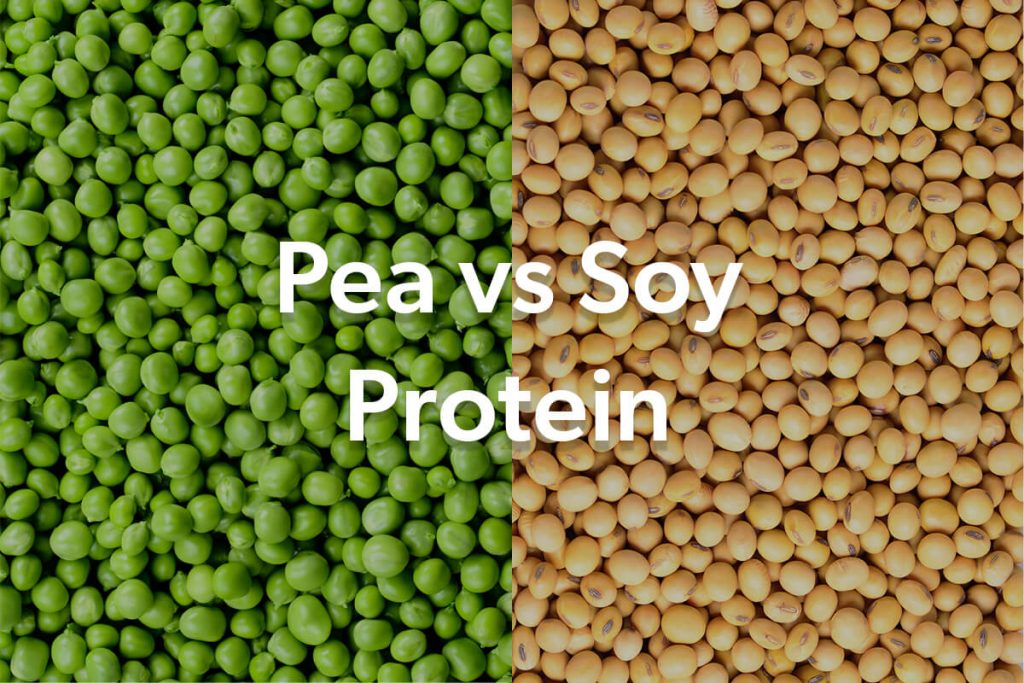
Vegans are always looking for ways to get their daily recommended protein intake while sticking to a plant-based diet. When it comes to pea protein vs. soy protein, they are two of the most popular plant-based proteins on the market. Both provide a range of nutritional benefits and can be used as excellent sources of dietary protein. While both are excellent sources of vegan protein, there are some key differences between the two that should be taken into consideration when choosing the best option for you. What sets pea and soy proteins apart from each other?
What is Pea Protein?
Pea protein has become increasingly popular in vegan diets because it is considered a complete source of vegan-friendly protein. Pea protein is derived from yellow peas and is a relatively recent addition to the plant-based protein market. It boasts an impressive amino acid profile, containing all 9 essential amino acids needed for muscle growth and repair. In comparison to whey and other animal-derived proteins, pea protein has significantly lower amounts of fat and cholesterol, making it a great choice for those on vegan or vegetarian diets. Pea protein also contains high levels of iron which helps maintain healthy red blood cells.
Is Pea Protein a Complete Protein?
Yes, pea protein is a complete protein since it contains all nine essential amino acids. Unlike many vegan friendly protein sources like grains, nuts, and legumes, pea protein does not require combining different vegan sources to get a complete set of amino acids. Pea Protein may also contain helpful digestive enzymes and other beneficial compounds like polyphenols, which provides additional health benefits. Pea protein is an attractive vegan option for those looking to increase their consumption of healthy plant-based proteins without compromising on the full range of benefits offered by a “complete” source.

Pea Protein Benefits
Studies have shown that pea protein can be an efficient way to get the necessary amino acids and iron, while also being easier to digest than some animal-based proteins. Also, since pea protein is vegan it’s an excellent alternative for those wishing to avoid any food products derived from animals. Pea protein is also known for its high content of vitamins and minerals like magnesium, potassium and zinc, offering added health benefits. It’s no wonder why so many individuals are using pea protein as a vegan substitute or supplement in their diet!
What is Soy Protein?
Soy protein is a plant-based source of protein made from whole soybeans and provides a complete source of all 9 essential amino acids. It also contains fibre, iron and several vitamins that can help with overall health. It’s high in leucine, which helps to stimulate muscle protein synthesis. Soy protein also contains antioxidants and phytonutrients with proven health benefits.
Is Soy Protein a Complete Protein?
Yes, soy protein is a complete protein. According to studies and sources, it contains all nine essential amino acids that the human body cannot produce on its own and must obtain from food sources. Soy protein is considered to be a high-quality protein. It is commonly found in a variety of food products, including tofu, tempeh, and soy milk. It is also available in a number of other forms, such as powders, bars, and supplements, which can be used to add protein to meals and snacks.
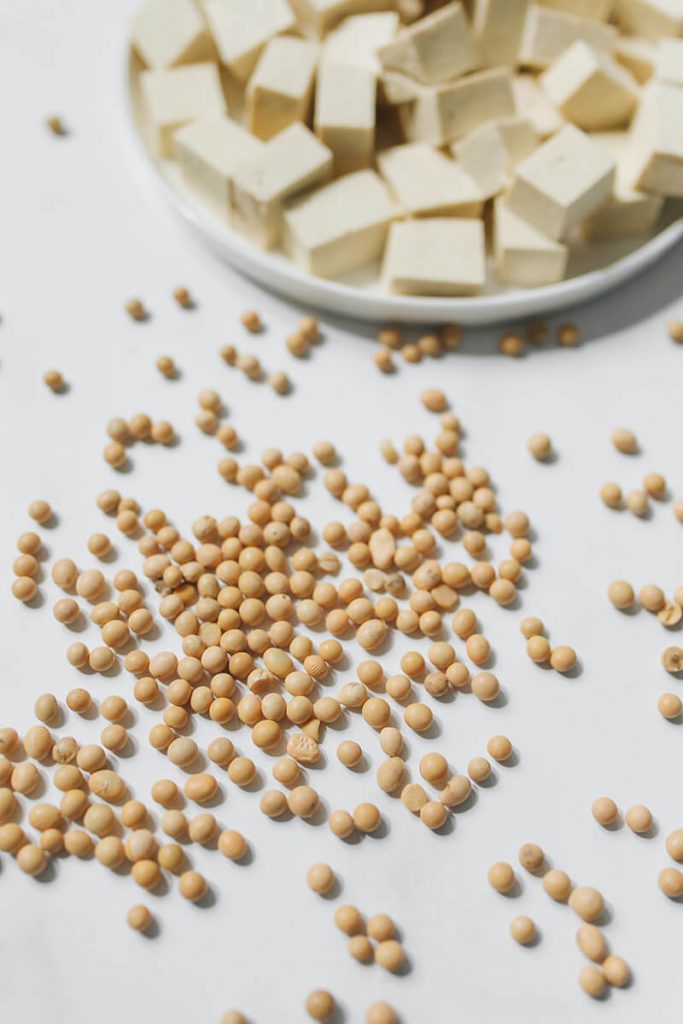
Soy Protein Side Effects
There has been some concern about the side effects of soy protein, as soy is a popular vegan protein source. Too much soy protein has been linked to headaches, and eating too many foods high in isoflavones contained in certain soy products can lead to gallstones and kidney stones. Other potential side effects include thyroid dysfunction, impaired fertility, and changes in metabolism. Some research has found that large amounts of soy may be linked to breast cancer recurrence in women, though all studies have not reached a consensus on this matter. Certain vegan alternatives to animal proteins are healthier than an overreliance on soy as a vegan source. Therefore, it is essential for vegan eaters to consider their intake of each vegan food group carefully so as to mitigate any potential health risks.
Pea Protein vs. Soy Protein
In general pea protein is considered more easily digestible than soy protein and its neutral flavor makes it better suited to mixing into food or drinks without affecting their taste. However pea protein does contain less complete amino acid profiles than soy protein so if you’re looking to achieve certain fitness goals like building muscle mass then your best bet would be to combine pea and soy proteins together to get the most out of it. So should you go with soy or pea protein? Keep reading to learn more about the nutritional facts about each kind of protein.
Macronutrient Content
Pea protein and soy protein have become popular vegan sources of nutrition. Although many people tend to prefer one over the other, both have a number of important macronutrient differences that can help inform vegan dietary decisions. When looking at protein content, both sources provide similar amounts, but soy protein is known for containing higher levels of fibers whereas pea protein has more essential amino acids. Pea protein also contains fewer carbohydrates than soy protein. Therefore, when it comes to picking between these options, knowledge about their macronutrient differences can be an invaluable tool so you can make an informed decision on which is ultimately better for your goals and needs.
Micronutrient Content
Pea protein and soy protein are two proteins derived from legumes. While both provide substantial amounts of essential micronutrients, they differ in the variety of nutrients found within each. Pea protein is rich in glutamic acid, leucine, and arginine, three amino acids important for immune system function and muscle growth. Soy protein, on the other hand, provides a wide range of vitamins and minerals such as calcium, iron, and magnesium that support bone health.
Amino Acid Profile
Packed with body-building benefits, pea protein and soy protein are some of the most popular types of dietary supplements. Protein is a critical element in any nutrition plan, as it helps to build muscle and lose weight effectively. Pea proteins are rich in lysine, arginine and branched chain amino acids, while soy proteins tend to carry more glutamate, glutamine and cysteine. In addition to this, pea protein has a slight edge on soy protein due to its greater amount of tyrosine content.
Digestibility
Pea protein and soy protein are both highly digestible proteins, making them great if you’re looking for a way to get more plant-based protein in their diets. The digestibility of each type of protein is higher than many other sources of plant-based proteins, such as hemp or rice. Pea protein has an average digestibility rating of 92%, while soy protein has an average of 88%. This difference in digestibility can be largely attributed to how well the proteins are processed and the methods used in manufacturing of the finished products. Many companies have started using more modern processing techniques that help make pea and soy proteins more desirable in terms of efficiency and digestion. In addition, soybeans also contain enzymes that aid in its digestion, giving it a slight advantage over pea protein.
Taste
In terms of taste, pea protein has a more neutral flavor than soy protein. This makes pea protein easier to mix with other ingredients without it overpowering the flavor of your shake or smoothie. Some users also claim pea protein is easier on the stomach and causes fewer digestive issues compared to soy protein.
Commonly Asked Questions
Does Pea Protein Have Soy?
Does pea protein contain soy? Is pea protein soy free? That is a question we get a lot. Pea protein has risen to popularity as an alternative to whey protein for those looking for plant-based sources of protein to incorporate into their diets. Pea protein is derived from yellow peas, which are legumes not related to the soybean. As such, the pea protein itself does not contain soy and is dairy free.
Is soy protein bad for you?
Let’s explore the science behind this legume. Soy protein is made of isolated soy that is highly refined. Soy protein isolate also lacks many of the beneficial compounds that come with consuming whole soy products, including fiber and antioxidants. So is soy protein bad for you? Soy isolate is also often found in processed foods, which can significantly increase your risk for certain illnesses such as diabetes, heart disease and even cancer. Ultimately, moderate consumption of soy is considered healthy when it takes the form of traditionally prepared foods such as tofu or edamame.
Soy Protein vs. Pea Protein – Takeaway
Soy protein and pea protein both have their advantages and disadvantages, but ultimately it comes down to personal preference as to which one you choose. Consider each type carefully before deciding which will support your lifestyle best. Adding pea or soy proteins can provide many health benefits that help promote muscle growth, weight loss, and overall wellbeing. If you’re still debating on pea vs. soy protein, just know that no matter which option you decide on, both pea and soy protein will provide you with extra nutrition for a healthier life!

